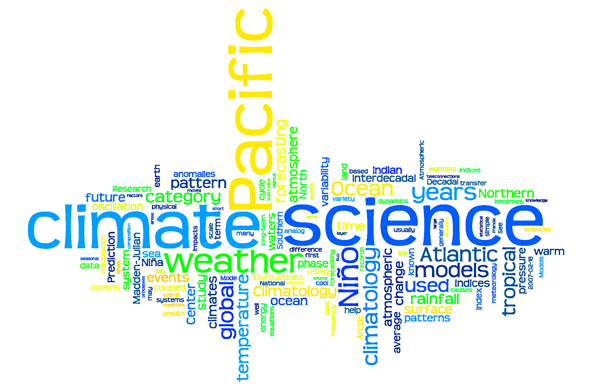In this contributed article, Or Lenchner, CEO, Bright Data, examines how public web data collection is essential to ESG efforts in 2022. The recent International Panel on Climate Change report warned that we aren’t doing enough to avoid the dire impacts of climate change – businesses must use every tool at their disposal to support the fight against climate change, especially quality data.
Climate Change is an Existential Threat, and Businesses Need Data to Fight It
How AI Unlocks The Secrets Behind Sports Rehab and CBD
In this contributed article, Scott Mazza, co-founder and COO of Vitality CBD, discusses groundbreaking discoveries in sports rehab, specifically how big data is the differentiator – ML algorithms and AI-powered tools will be invaluable for trawling through scientific literature to find relevant studies as well as combining different datasets.
New Streamlined Statistical Method Provides Improved Pattern Detection and Risk Prediction for Disease
Researchers from the Renaissance Computing Institute (RENCI) at UNC-Chapel Hill, Perspectrix, the UNC School of Medicine, and the WVU Rockefeller Neuroscience Institute have collaborated to develop a new method for finding patterns in data which arguably surpasses the performance of a generally accepted “gold standard.”
H2O.ai Showcases Healthcare and Life Sciences Leadership with Customer Successes, Breadth of AI Apps
H2O.ai, an AI Cloud leader, announced it has expanded its healthcare capabilities, now offering 40 AI applications across population health, precision medicine, public health and intelligent supply chain, supporting customers throughout the healthcare ecosystem including Bon Secours Mercy Health (BSMH) and Kaiser Permanente.
Big Data in Life Sciences – Why ‘doing things the old way’ is the Biggest Barrier to Progress
In this special guest feature, Zachary Pitluk, Ph.D., Vice President of Life Sciences and Healthcare at Paradigm4, highlights how real insight comes, not from data collection, but from intelligent data curation, computation, and application. Many are convinced that the life sciences industry inertia needs to change in terms of willingness to take a step back from old school wisdom and consider new methods and new approaches.
Proscia Announces Artificial Intelligence Breakthrough in Melanoma Detection
Proscia®, a leading provider of digital and computational pathology solutions, has released study results on new technology that leverages artificial intelligence (AI) to automatically detect melanoma, the deadliest form of skin cancer, with a high degree of accuracy. The findings illustrate the promise of AI to deliver faster diagnoses, improve patient outcomes, and optimize laboratory economics in the routine practice of pathology.
Working Smarter: Leveraging Machine Learning to Optimize CO2 Adsorption
In a recent study published in Environmental Science and Technology, a collaborative research team from Korea University and the National University of Singapore employed a machine learning-based approach that may guide the development of future porous carbon synthesis strategies. The scientists noted that there are three core factors influencing the CO2 adsorption properties in BWDPCs: the elemental composition of the porous solid, its textural properties, and the adsorption parameters at which it operates, such as temperature and pressure. However, how these core factors should be prioritized when developing BWDPCs has remained unclear, until now.
Coming Next in Smart Farming Agronomy —Digitizing the Microbiome
In this contributed article, Bob Gunzenhauser, Agronomy Science Manager for Granular, part of Corte, explores how AI-driven tools are digitizing the soil microbiome and will eventually become another layer of data to drive precision farming. Bob shares his insights as a fifth generation farmer in Iowa who has been involved in the development of Decision Agriculture over the last 25 years, from its early days of yield monitors to today’s predictive analytics and crop modeling.
Webinar: Using Third-party Healthcare Data to Accelerate Drug Discovery and Clinical Trial Protocol Design
[SPONSORED CONTENT] In this virtual session, AWS Data Exchange will host a panel discussion with thought-leaders from healthcare powerhouse companies like QIAGEN and IBM Watson Health. Learn about the critical role third-party datasets have played in the evolution of the healthcare and life sciences industry. FRIDAY, AUGUST 27 at 11AM PT | 2PM ET
AI Under the Hood: Object Detection Model Capable of Identifying Floating Plastic Beneath the Surface of the Ocean
A group of researchers, Gautam Tata, Sarah-Jeanne Royer, Olivier Poirion, and Jay Lowe, have written a new paper “DeepPlastic: A Novel Approach to Detecting Epipelagic Bound Plastic Using Deep Visual Models.” The workflow described in the paper includes creating and preprocessing a domain-specific data set, building an object detection model utilizing a deep neural network, and evaluating the model’s performance.













